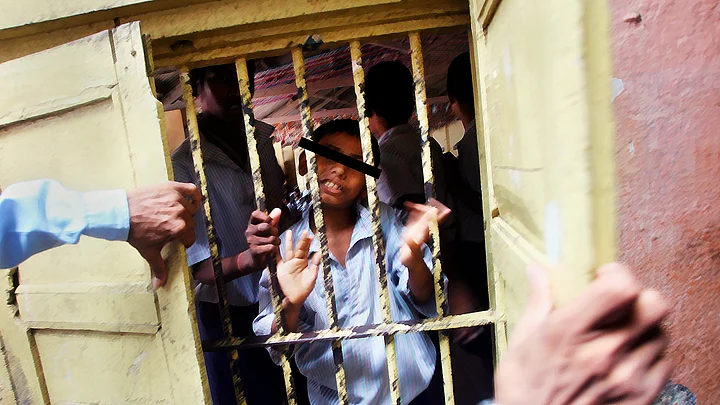So the Parliament, which previously found itself paralysed on just about every other issue, got its act together long enough on 23 December to clear the controversial Juvenile Justice Act. Under this new law, any minor between the age group of 16 and 18 can be tried as an adult if the crime they commit is judges to be heinous one.
“Heinous offences” include the offences for which the minimum punishment under the Indian Penal Code or any other law is imprisonment for seven years or more.
By this definition, any minor suspected in cases of rape, murder, robbery, burglary, attempt to murder, acid attack, kidnapping can be tried as an adult. Of course, the law makes clear that not all such suspects will be tried in ‘regular’ courts. Yet, there are many cases where it may be misused.
Speaking to The Quint, a lawyer who works in the Juvenile Justice Board says that for instance, many cases of elopement by minors are treated as cases of rape. Inevitably in such cases, the boy is tried under rape charges, irrespective of whether there is a prima facie reason to do so or not.
In elopement cases, the girl’s parents generally force her into giving statements against the boy in the most horrific and brutal manner so that he is not only charged with rape but also faces the maximum punishment.Lawyer, Juvenile Justice Board
The new JJ Act empowers the Board to conduct a preliminary inquiry to decide whether the crime was heinous or not with the assistance of psychologists, psycho-socio workers and other experts.
However, the Act gives away discretionary power to the police and psychologists who can then misuse their power and position.
Now what if a minor were to be arrested for burglary? According to a National Crime Records Bureau (NCRB) report, in 2014, the highest numbers of minors were apprehended for thefts (8,863) followed by criminal burglary (3,802) and rape (2,144). These taken together accounted for 34.8% of all the juveniles apprehended under the Indian Penal Code (IPC).
But since burglaries can now be treated as heinous crimes as per the new Act, this too can be misused. In 2014, almost 4000 juvenile were arrested for burglary. Sources in the Juvenile Justice Board say that there is a very minor difference between a theft and a burglary.
The investigating officers, often in cases of repeated offenders, change theft into burglary. In such cases, the minor would face a harsher punishment. Many-a-time, just to solve a case, the police wrongly implicate minors with a previous record.Former Member, Juvenile Justice Board
Forget Age, What About Reform?
And what about reform? The government has succeeded in lowering the age for trying minors as adults to 16, but what about reforming them? After all, the Observation Home allegedly failed to reform the youngest convict in the 16 December gangrape. Shouldn’t there have been a provision to hold correctional facilities to account?
Whether new or old, the JJ Act extensively deal with the reform issue. The problem is implementation. As per the Act, an individual care plan is prepared to reform the juvenile. But the plan is not followed or implemented. In the case of the Nirbhaya juvenile convict, 3 years would have been quite enough to reform him, had a close watch been kept on his progress.Lawyer, Juvenile Justice Board
As per the Act, the ‘individual care plan’ of each juvenile should be implemented by the Probation Officer or the District Child Protection Unit or a member of a non-governmental organisation. Every time the juvenile appears before a Magistrate, it’s mandatory to place his progress report, and if needed, changes made to his care plan. The alleged radicalisation of the convict in the Nirbhaya case is a brazen example of the loopholes in the implementation of reform activities in Observation Homes.
Lowering the age is not a solution. Reforming the child is a solution. The Government should have put in more effort to define the word ‘heinous’ to stop its misuse.Former Member, Juvenile Justice Board
With the new JJ Act in place, the Government feels, there will be a dip in crimes committed by juvenile offenders. But the officers and the lawyers who deal with the JJ Act on day-to-day basis aren’t so optimistic.
